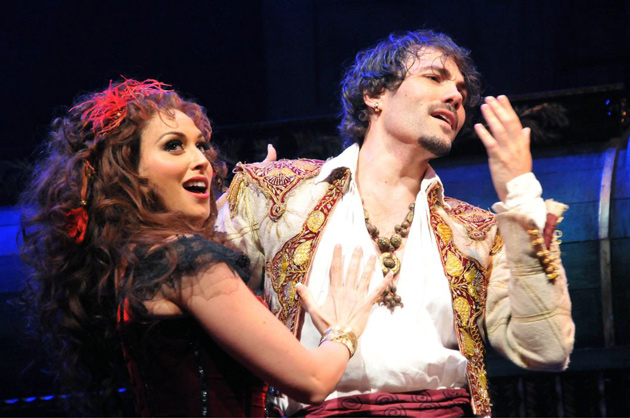 EGBDF – if you’re musical you’ll understand the humour already there. It’s a typically Stoppard witty play but beneath that lies an emotive story. Set within a mental institution in the middle of communist Russia it tells the stories of Alexander, a rigid dissident whose ‘opinions are his symptoms’ and his ward (meaning cell) mate Ivanov who is oblivious to this world because in his head Ivanov thinks he is surrounded by an orchestra.
EGBDF – if you’re musical you’ll understand the humour already there. It’s a typically Stoppard witty play but beneath that lies an emotive story. Set within a mental institution in the middle of communist Russia it tells the stories of Alexander, a rigid dissident whose ‘opinions are his symptoms’ and his ward (meaning cell) mate Ivanov who is oblivious to this world because in his head Ivanov thinks he is surrounded by an orchestra.The SouthBank Sinfonia takes to the stage to perform Andre Previn’s brilliantly emotive score. The music can be somewhat distracting at first, but this puts the audience in Ivanov’s mindset who cannot concentrate since the make believe orchestra is constantly tormenting him. The actors and orchestra work seamlessly together, the orchestra dominating the stage making the space for their cell effectively cramped.
Directors Felix Barrett and Tom Morris have incorporated the cleverest techniques into EGBDF to great effect and a somewhat abstract feel to great effect. The crosscutting shows the worlds in and out of the institution, as well as the difference between living in Ivanov and Alexander’s heads. And there was a somewhat random dance displaying the cruelty of the KGB, actually an innovative contrast of beauty to the subject matter.
Joseph Millson gives a brilliant performance as Alexander, the audience willing him to tell a lie so he can return to his traumatised son Sacha. Dan Stevens, the violin playing Doctor deliver his one liners with great finesse and Toby Jones is flawless in the great challenge of a man with his intriguing illness. He talks about his orchestra with a deadly seriousness and love, yet interspersed with the pain the fantasy is causing him.
Every Good Boy Deserves Favour is a beautifully deep play, lightened but not tainted by Stoppard’s fabulous humour.
Veronica Grubb





